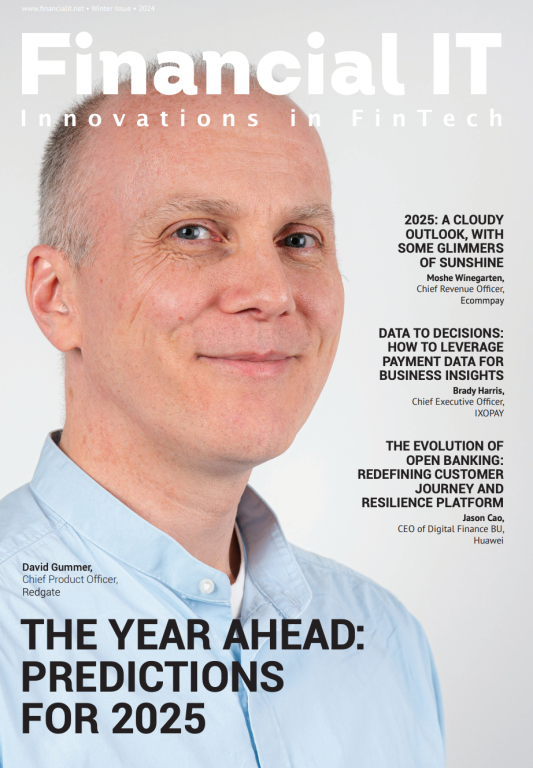NEW DECADE - NEW BANKING

- Anders la Cour, CEO at Banking Circle
- 27.04.2020 03:00 pm #banking
In late 2019 Revolut Business commissioned a survey of more than 600 business owners, managers and financial directors for SMEs in the UK, France and Poland, aiming to uncover the difficulties smaller businesses face in accessing credit, getting paid and finding suitable financial partners.
A whitepaper, ‘2020 Vision: Taking a closer look at antiquated banking practices’, has just been published, exploring the survey findings. The results did not surprise us in the Banking Circle office; in fact, they very much support our own SME research published in 2018 and 2019.
Setting the scene
The whitepaper paints a very clear and somewhat nostalgia-inducing picture of life and business a decade ago, highlighting the pace of change and the stark contrast between then and now:
“At the turn of the last decade, the global financial crisis was still just unfolding, with many banks around the world reliant on government aid to stay in business. It was a business landscape only just emerging from the analogue age: fewer than one in five people (19%) had access to a 3G smartphone[1], just one in ten (10%) of European SMEs had taken an order online[2]. It was an economy dominated by cash and cheques[3].”
“Ten years ago, many SMEs still relied on business services and practices that had not changed for decades. It was common to prepare accounts on paper and go to meet accountants weighed down with hardcopies of invoices, receipts and statements. They met with lawyers to draw up contracts and planned their work in team meetings and with paper diaries and planners.”
It is hard to believe this was our ‘normal’ just ten short years ago. In contrast, payments and banking has changed very little in this time. As Revolut confirms in its white paper, banking is still dominated by traditional incumbent banks. However, the survey also showed that whilst customers of high street banks report relatively high levels of satisfaction, there is also a “significant desire for change.”
New Banking Horizons
As with our own research, Revolut found that the industry is at an inflection point. Big banks have the invaluable benefit of history, long-standing and loyal customer relationships, established reputation. New entrants cannot compete with this. However, those big banks are slow to innovate, hemmed in by legacy infrastructure that is costly to maintain and leaves very little in terms of resources for investment in new products and services. This leaves them unable to compete with nimble FinTechs building brand new solutions specifically designed to meet today’s business banking needs.
Digital-first businesses need banking solutions that can keep up. Revolut asks, can this need be met by existing relationships? The report encourages businesses to take the new decade of 2020 as a chance to “take off your rose-coloured lenses and consider changing those relationships for the better.”
Finally, the white paper includes a helpful quick and simple self-assessment to help SMEs check how well they are currently served by their banking partner.
SME Banking Today
Some of the other key figures regarding current SME banking requirements reported in the whitepaper include:
- 54% of SMEs seldom or never call their bank.
- 40% seldom or never visit a branch.
- 43% percent of SMEs use online banking daily to manage their accounts. An additional 30% do so weekly.
- 33% of SMEs use mobile banking every day, and 28% do so every week.
- 65% of SMEs in Poland, 49% in France and 37% in the UK have two or more banking relationships.
- 10% of French and Polish SMEs, and 5% of UK SMEs, have relationships with four, five, or even six different banks.
Banking Circle delivers game-changing solutions to, and on behalf of, payments businesses and banks. Fully licensed but free of legacy systems, financial infrastructure is delivered at low cost but without compromising on compliance or security. We also provide access to the real-time payments SMEs need, regardless of borders and size of operator.
As a business we have always been committed to improving financial inclusion by building dedicated new tech, rather than tailoring or tweaking existing solutions. As a result, we now offer bespoke, flexible, scalable and futureproof solutions. We help Banks focus on the all-important customer relationship while we deliver the pipes and plumbing of new innovative solutions, and we help new entrants increase their customer base and their reach far more quickly than they could otherwise.
[1] https://www.statista.com/statistics/232688/3g-mobile-wireless-penetration-in-europe/


























